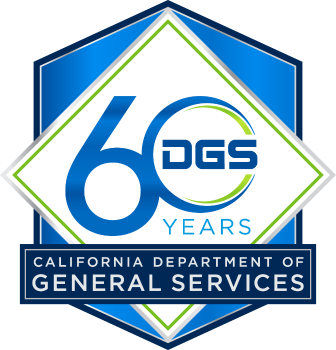FOOD WASTE - 1930.5
Food waste is one of the largest single disposed materials in California landfills. Assembly Bill 1826 (PRC Sections 42649.8 - 42649.86) was passed in September 2014 requiring businesses, including state agencies, which generate certain amounts of organic waste per week to have organic waste recycling programs.
On and after January 1, 2016, local jurisdictions across the state are required to implement an organic waste recycling program to divert organic waste generated by businesses, including state agencies.
The types of organic material that the law requires organic waste programs to address include: food waste, green waste, landscape and pruning waste, nonhazardous wood waste, and food-soiled paper waste that is mixed in with food waste.
All state agencies with food preparation/dining service (either state or contractor operated), shall explore options that reduce or prevent the landfill disposal of food waste. Reducing the generation of food waste is always preferable. In regions where programs exist, state agencies can participate in local or regional efforts to donate unspoiled edible food for human or animal consumption before it is disposed.
State agencies can direct that food waste be separated from other waste material and diverted to facilities where it is composted, digested or otherwise processed. Because food waste degrades quickly and can produce odors or attract vectors, state agencies should consult with CalRecycle staff to explore available source reduction and recycling options, compliance with solid waste handling regulations, laws and regulations regarding mandatory organics recycling, as well as any permits which may be required if the option selected includes on-site food waste recycling solutions.
Collection of pre- consumer food waste generated at adult correctional institutions may be managed through a master agreement. Example food waste collection contract language for other state agencies is available on the CalRecycle’s web site: CalRecycle Office Paper.
This law phases the requirement to have organic waste recycling programs over time. In particular, the minimum threshold of organic waste generation by businesses, including state agencies, decreases over time, which means that an increasingly greater proportion of businesses will be required to comply.
The phased requirement dates to have organic waste recycling programs:
8 or more cubic yards of organic material per week – April 1, 2016
4 or more cubic yards of organic material per week – January 1, 2017
4 or more cubic yards of solid waste per week – January 1, 2019
2 or more cubic yards of solid waste per week, if statewide disposal of organic waste is not decreased by half – January 1, 2020.
State Agencies can comply with the new requirements by taking one or any combination of the following actions:
Source-separate organic waste from other waste and subscribe to an organic waste recycling service that specifically includes collection and recycling of organic waste. Recycle organic waste onsite, such as composting, anaerobic digestion, vermicomposting, or self-haul to an organics recycling facility.
Subscribe to an organic waste recycling service that includes mixed-waste processing that specifically recycles organic waste.
Sell or donate the generated organic waste.
Please refer to Mandatory Commercial Organics Recycling (MORe) FAQS under “Business” to answer additional questions on how an agency qualifies as a business. (CalRecycle FAQ) and for more information on food waste recovery: CalRecycle Organics
Listed below are some steps to take:
Review the background and overview to Mandatory Commercial Organics Recycling CalRecycle Organics
Check with your CalRecycle LAMD representative to discover what organics recycling programs are or will be available in your jurisdiction or area.
If applicable, coordinate with the building owner regarding areas for collecting, storing and loading the organics.
Implement additional programs, when possible or required. Each type of organics recycling program may not be required for your agency and will depend on the jurisdiction or area.
Refer to SAM 1950 for State Agency Responsibilities.
Report on programs in the annual State Agency Waste Management Report due May 1st each year CalRecycle State Agency.
For additional mandatory organic recycling requirements, please refer to SAM section 1930.8: ORGANIC WASTE.Revisions
No Revisions for this item.

